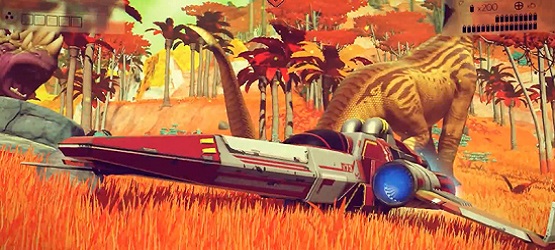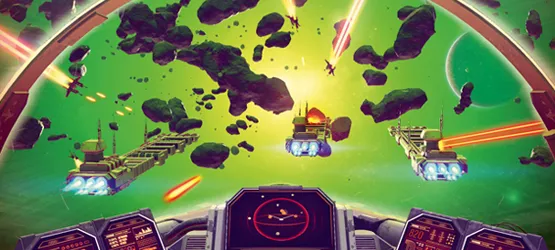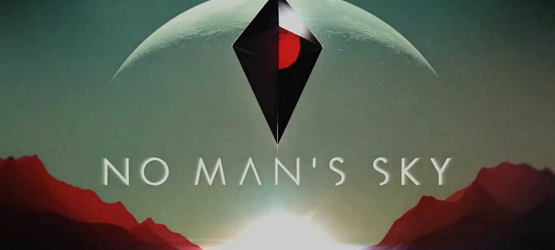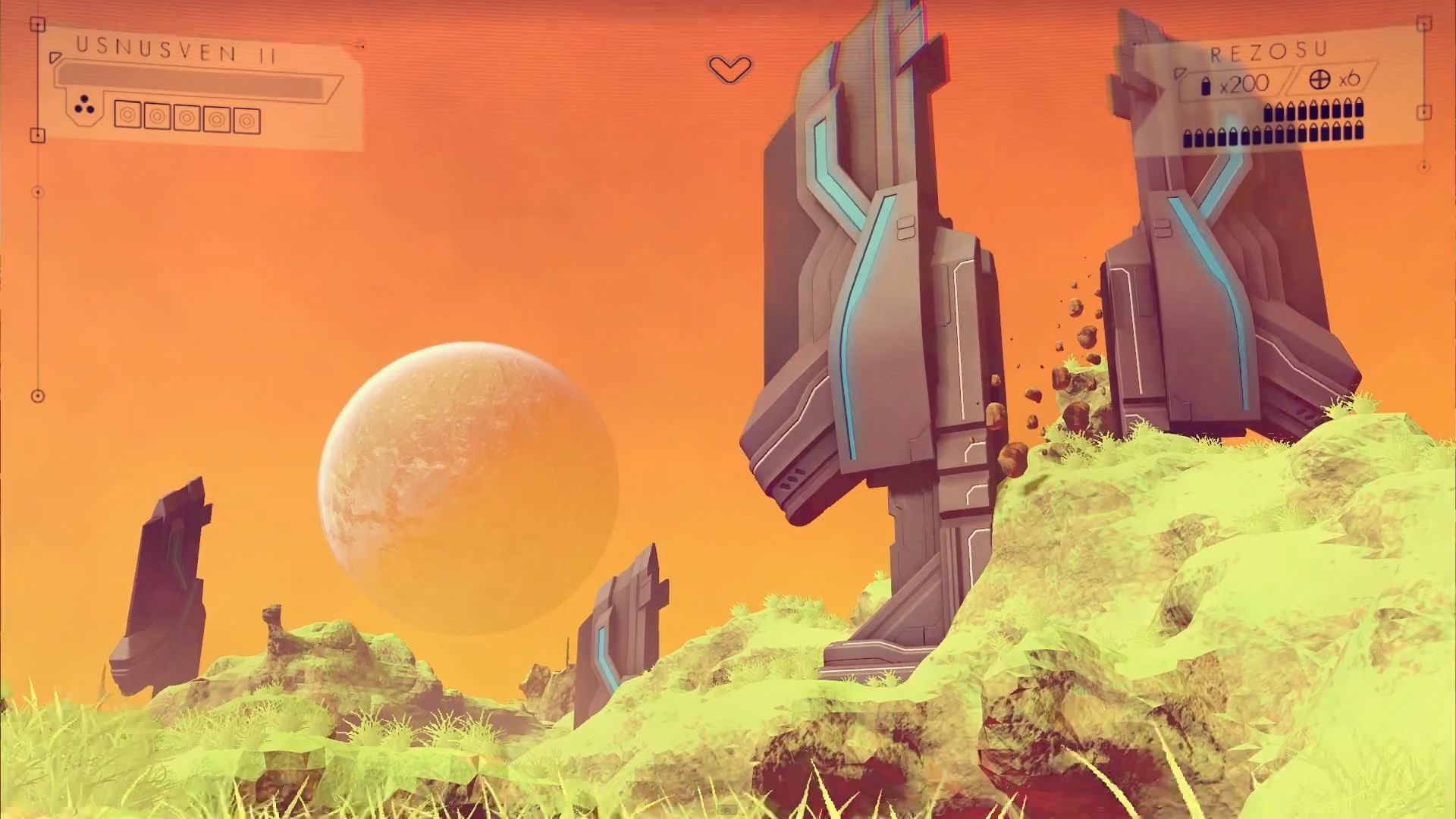When celebrated astronomer and author Carl Sagan touched upon the unassuming, near infinitesimal nature of our own planet earth, he surmised it as so: Look again at that dot. That’s here. That’s home. That’s us. On it everyone you love, everyone you know, everyone you ever heard of, every human being who ever was, lived out their lives. The aggregate of our joy and suffering, thousands of confident religions, ideologies, and economic doctrines, every hunter and forager, every hero and coward, every creator and destroyer of civilization, every king and peasant, every young couple in love, every mother and father, hopeful child, inventor and explorer, every teacher of morals, every corrupt politician, every “superstar,” every “supreme leader,” every saint and sinner in the history of our species lived there-on a mote of dust suspended in a sunbeam.
Pushing the Boundaries
Humbling yet evocative, this passage has inspired modern day thinkers for the last two decades. But while it perfectly encapsulates our place amongst the cosmos, and how contained human existence really is, it doesn’t allude to how the human imagination — in all of its unbridled glory — reaches far beyond these physical parameters.
For one, the night sky has enthralled human beings for aeons, and this fascination has slowly filtered back into our creative cultures through books, films and video games. Whether it’s Star Wars or Mass Effect, Firefly or 2001: A Space Odyssey, these space operas draw upon hard-hitting existential themes that include our place in the universe and what it means to be human.
But scratch beneath the glossy aesthetic and you’ll find one theme that resonates across these titles regardless of genre or topic: an innate, burning desire to explore the unknown. That act of discovery and travelling beyond the horizon is a feat that inspires dreams and empowers the viewer and, as we are about to find out, the player.
Because there is one upcoming game that taps into this desire with its ambition and colossal, at times unfathomable scope; one game that also hopes to resurrect a genre long thought to be dormant and drag it kicking and screaming into the console space in the process; that being the space trading and combat simulator. And this title is better known as Hello Games’ No Man’s Sky.
Every Atom Procedural
First revealed during the VGX awards show in 2013, the studio’s bold and intricate title has turned heads and raised eyebrows across the community, promising a epic and seemingly infinite spectrum upon which to chart your own journey to the stars. Because in an industry saturated with sequels, prequels, and derivative spinoffs, No Man’s Sky represents a bold new IP that is, quite literally, reaching for the stars.
In fact, it is as though Hello Games’ space sim is riding the crest of an interstellar wave, buoyed by other like-minded releases such as Elite: Dangerous and Chris Roberts’ upcoming and indeed Kickstarer-funded simulator, Star Citizen.
Although with No Man’s Sky, players will stand on the edge of infinity, staring down at an array of procedurally-generated worlds vying to be explored. And explore they shall. But before delving into the goals within Hello Games’ IP, it’s important to recognise its journey into development. We’ve already seen the serene, lime-green milieus populated with alien creatures; the stark, retro-futuristic spaceships scraping the skies of a planet as bizarre and remarkable as the next. They are, for all intents and purposes, the tip of a monumental iceberg, and even though NMS boasts a rich, immeasurable universe, the story behind the pixels couldn’t be more different.
Having worked solely on the Joe Danger series up to this point — a wacky motorsports franchise that is essentially the ying to No Man’s Sky’s otherworldly yang — Hello Games piqued our collective interest when it formally unveiled its sprawling space adventure to the industry. As a small British studio comprised of a core, four-person team, creating an entire universe was no mean feat, and the fact that it will take an alleged 585 billion years to glimpse each and every incremental variation within NMS makes this feat all the more remarkable — unprecedented, even.
Labor of Love
Coming off the back of that show-stopping reveal, all signs pointed to the studio riding a wave of goodwill right up until the game’s eventual release. But just a few weeks later, on Christmas Eve 2013, a river close to the company’s offices in Guildford, England broke its banks, flooding the entire building.
It was a freak and untimely natural disaster that put a dampener on Hello Games’ parade (quite literally), with the studio revealing that “everything in the office [had] pretty much been lost.” Shaken, stirred, yet still committed to the task at hand, the British-based dev slowly began its rebuilding efforts over the course of 2014.
If anything, this trying ordeal just offers up further proof that No Man’s Sky is a special kind of passion project. A rich, daring love letter to a genre renown for instilling a profound sense of awe in its audience. It is for this reason that, in terms of gaming, the space exploration sim has proved to be so resilient, and you only have to cast an eye to NMS’ galactic contemporaries for evidence of this trait.
Having been largely restricted to PC platforms for generations, now appears to be as good a time as any for the space simulator to dogfight its way onto consoles and, in this case, the PlayStation 4. Granted No Man’s Sky is being primed for a release on PC, too, but given that the ambitious space sim will make its debut on PS4, there’s a particular brand of expectation resting on its shoulders.
The Pitfalls of Hype
If 2014 taught us, or perhaps reminded us of, anything, it’s that hype can be prove to be a dangerous, all-consuming beast. From Watch Dogs to Titanfall, Destiny to Assassin’s Creed: Unity, each of these triple-A titles share one thing in common in that the final product wasn’t, for one reason or another, what was initially promised.
Sensationalised beyond their pixelated means, it becomes a little disconcerting to witness a bold new IP fizzle out like a blink-and-you’ll-miss-it flash in the pan. Be it prolonged delays or in-game content that proves to be overlong or repetitive, there are a plethora of factors that can irrefutably hamper a game’s staying power.
Longevity is clearly a pressing concern for the creative team behind No Man’s Sky. In a universe that promises a far-reaching, unfathomable scope, Hello Games Managing Director Sean Murray is ensuring that the experience proves to be vast, yes, but also inherently intimate.
Speaking with EDGE, Murray touched upon the ending of the space-faring adventure, stating that:
I’d like people to reach the centre of the galaxy and feel like they could put the pad down, that they had completed the game. Because it bothers me with games that go on forever. In an ideal world, at one point, others would feel like continuing to play and we will give them a reason to do that.
Like most games, NMS is attempting to perform a balancing act that provides players with a tangible arc that will guide them through from beginning to end all the while ensuring that these players understand their greater purpose. Saving princesses and foiling plans of world domination are common traits in the gaming lexicon, but when a title pushes the envelope into the realm of the unconventional, it quickly becomes a tough sell to the average consumer.
Unbridled Freedom
This predicament will stem from the fact that No Man’s Sky won’t burden users with explicit instructions in the traditional sense. Sure, in keeping with the space simulator genre, you’ll begin the game with little to no resources and a humble, weak spacecraft. But from that point on, you’re free to chart your own journey through the galaxy, acquiring valuable resources and minerals as you go. Imagine Minecraft, in space.
It’s a facet that is at once liberating and incredibly enticing, but it also raises one glaring question: what’s the point? Granted, No Man’s Sky isn’t appealing to as broad an audience as, say, Call of Duty, but outside of the harvest resources, acquire wealth gameplay loop, the overriding story remains shrouded in mystery.
In fact, Hello Games has largely played its cards close to its chest hitherto, but the studio has hinted that there is a mystery lurking within the crux of the galaxy. A mystery that ought to provide players with a satisfying sense of closure and one that will take between 40-100 hours of gameplay, depending on your own personal play style.
Whether this loose end goal holds the player’s interest for that length of time remains to be seen, but Murray and Co. will no doubt be hoping that that innate sense of discovery and exploration into the unknown will be as immersive as it is rewarding.
Mind you, it’s worth keeping in mind that NMS isn’t as random or sporadic as you might think. By rendering its innards using a procedural framework, Hello Games has implemented an order to the madness; a complex series of algorithms that underpin what you see on the screen and essentially bestow a ruleset to the otherwise chaotic cosmos.
From what we’ve seen so far, No Man’s Sky looks to be a masterclass both in design and craft, with every stellar permutation only offering up a new horizon to chase. Here, the universe is at your fingertips, leaving you free to go boldly where no man has gone before, or likely ever will. For Hello Games’ space oddity, the devil is in the procedurally-generated details, we’ll just have to wait until its debut on PlayStation 4 to gauge whether it can rub shoulders with the other greats on Sony’s indie pantheon.
Besides, if Carl Sagan so perfectly captured the infinitesimal nature of our planet earth, marooned in the Milky Way as a wayward mote of dust, and the sprawling history of humanity despite our minute home, then imagine what stories lie beyond our humble galaxy — fictional or no.
Related Reading:
- No Man’s Sky Won’t Feature Any Load Screens
- The Story Behind Hello Games
- Check Out the No Man’s Sky Universe
No Man's Sky Game-Changer Gallery
-
No Man's Sky Game-Changer Gallery
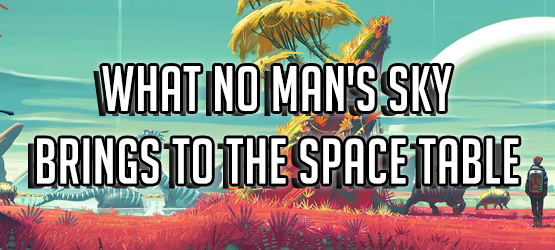
-
Space Oddity
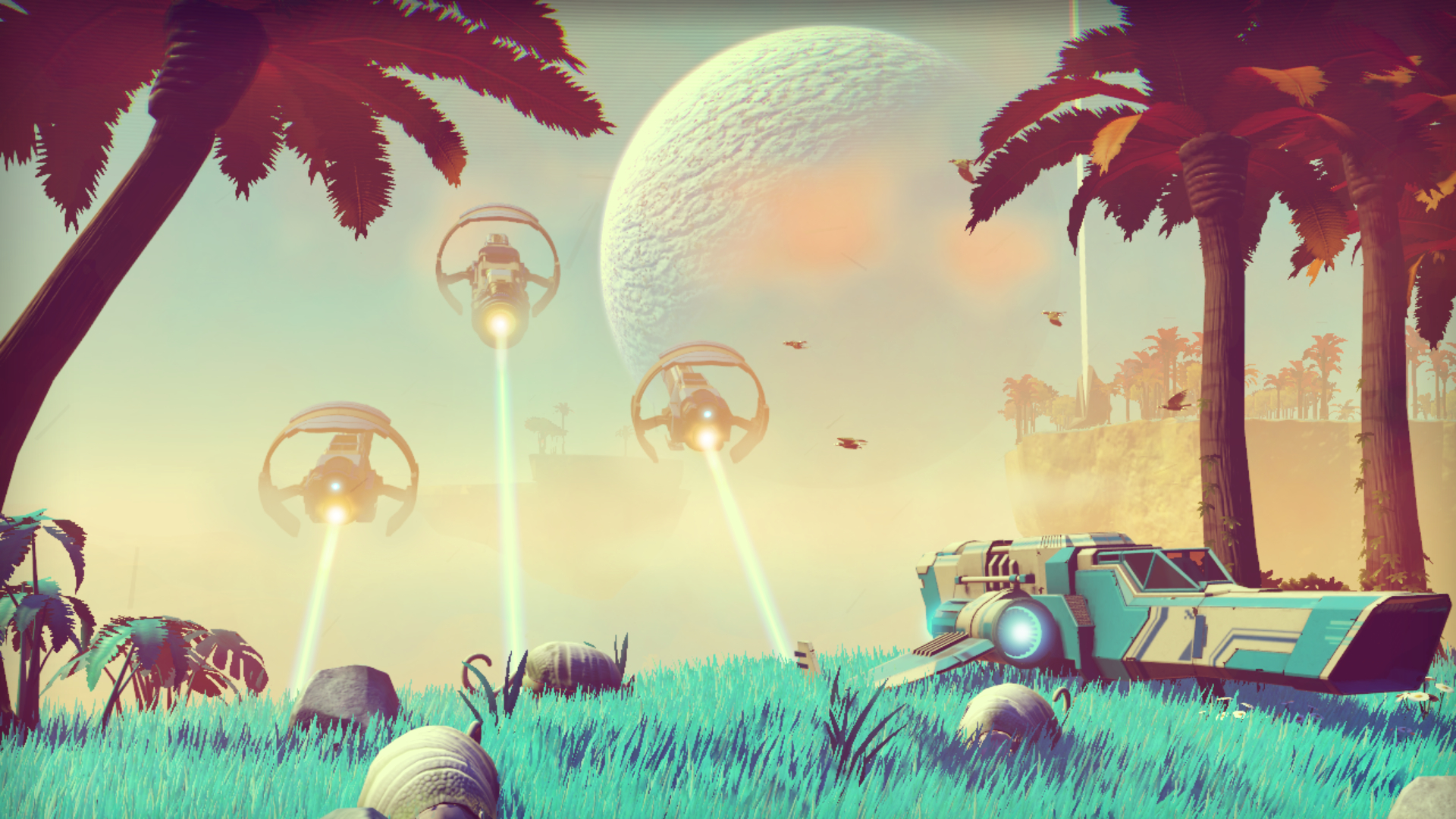
Hello Games has long made it clear that its peculiar space simulator has been a tricky butterfly to pin when it comes to preview events. An eccentricity that has us all the more excited for its eventual release.
-
Bragging Rights
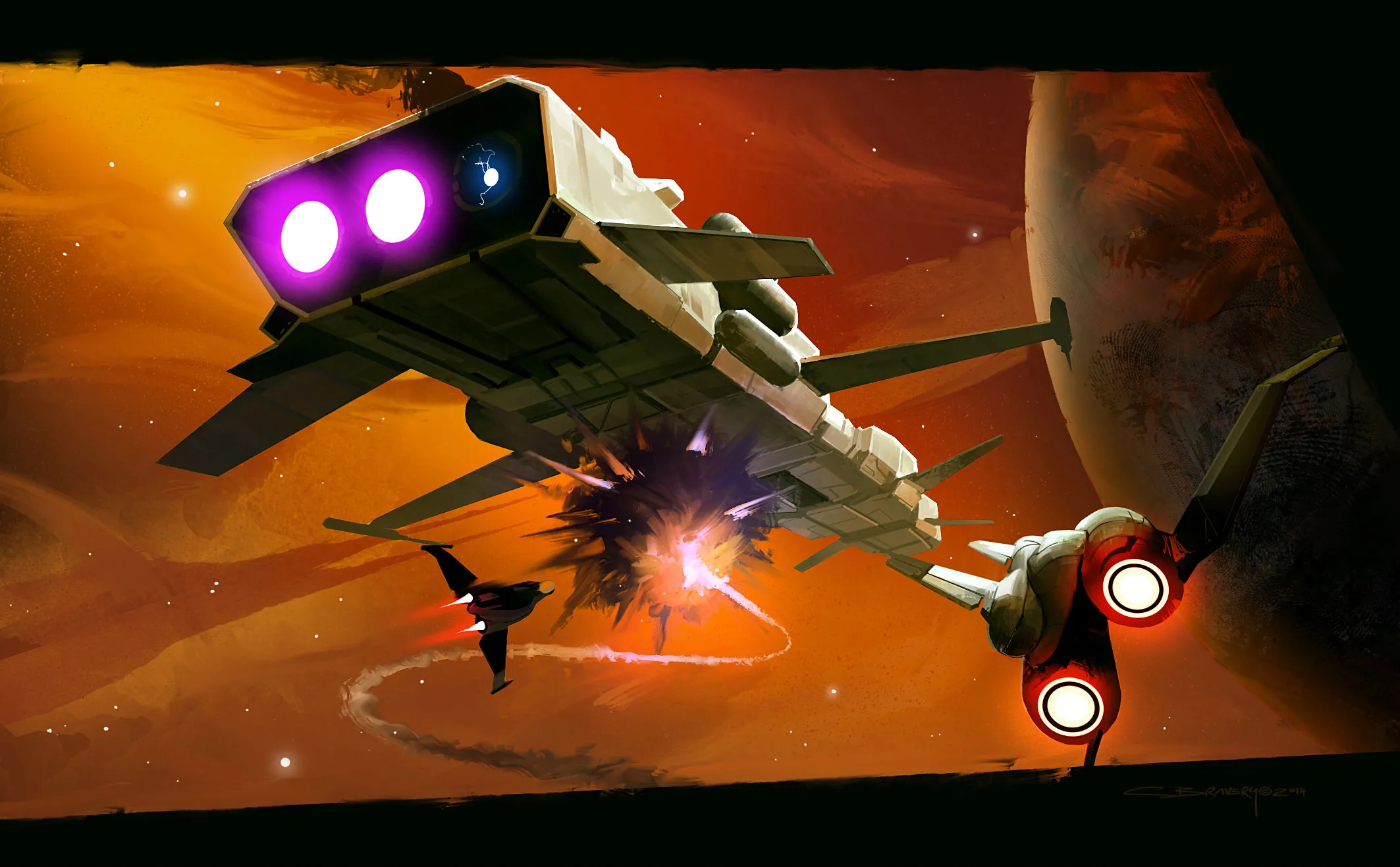
Starting from scratch, players will gradually acquire wealth as they hop from planet to planet, uncovering new ships and resources in the process.
-
A New Feeling of Immersion
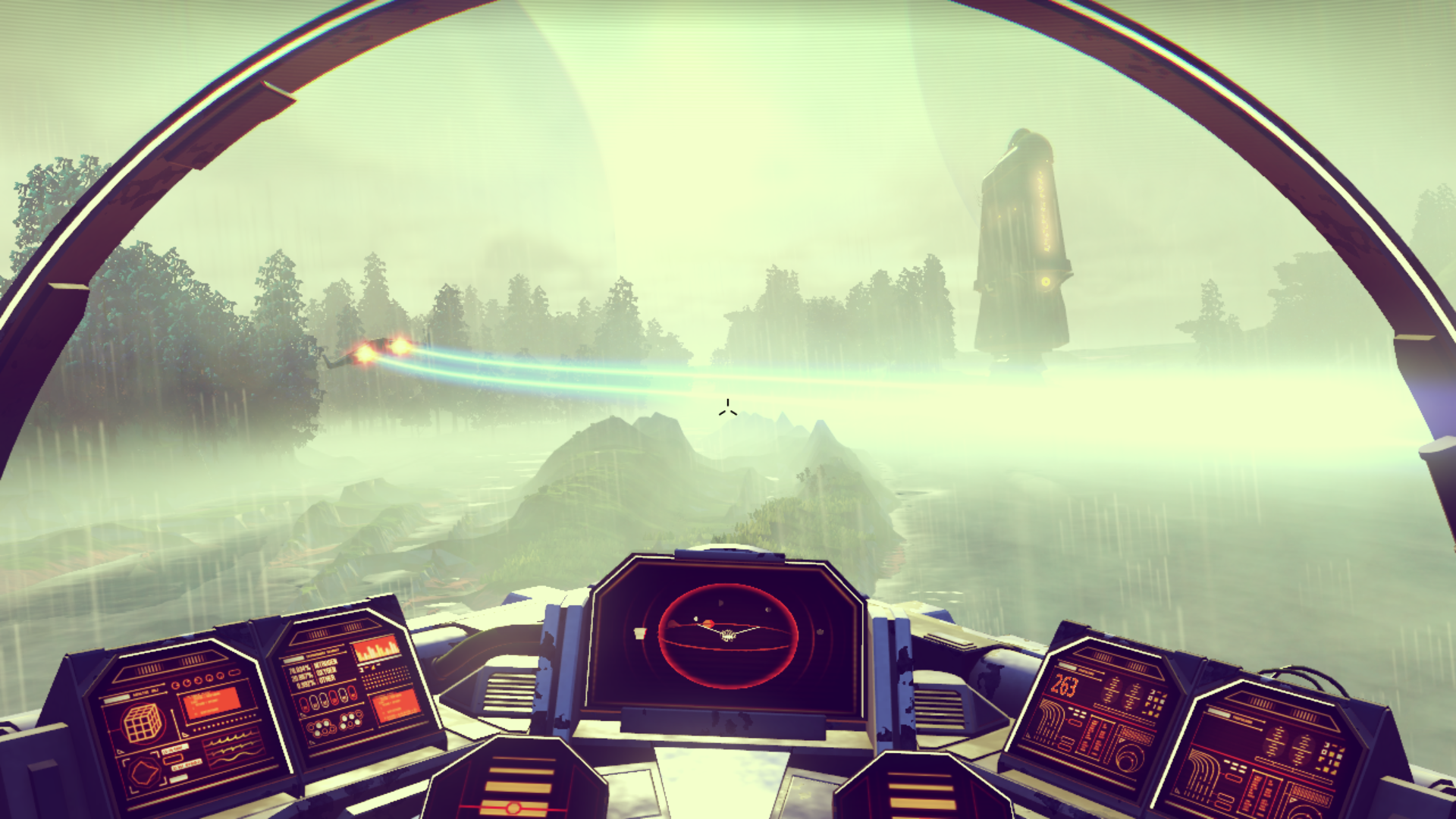
Built around a first-person perspective, No Man's Sky is placing you smack bang into the thick of the action as you explore its alien worlds.
-
Uncharted Territory
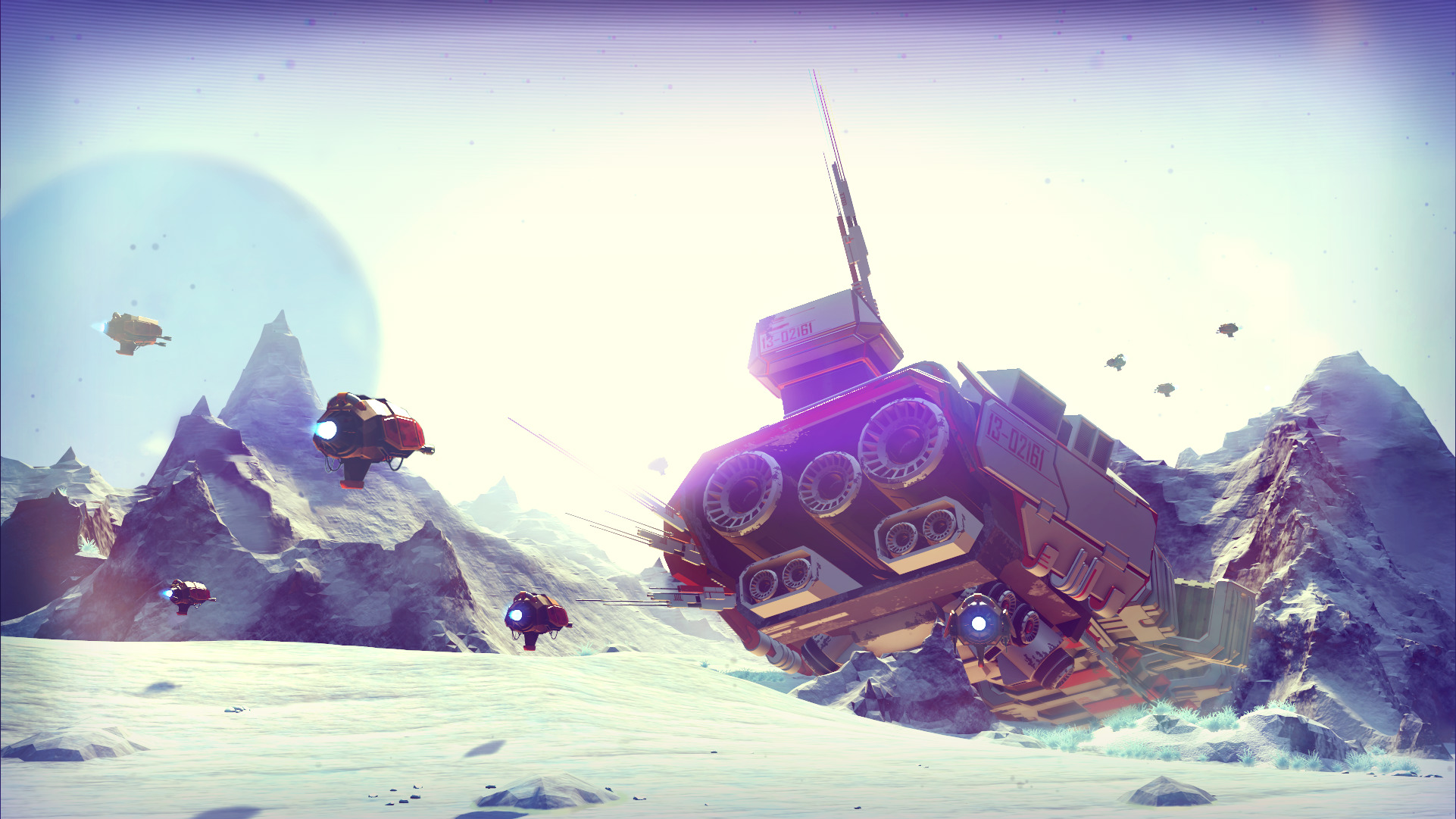
With its unique color palette and dazzling planets, Hello Games' will look to make the PlayStation 4 sing.
-
Hey, Get Back Here!

Exploration may be a core strand of the game's DNA, but the studio has hinted that players will also find themselves in the midst of high-speed dogfights.
-
Chasing the Horizon
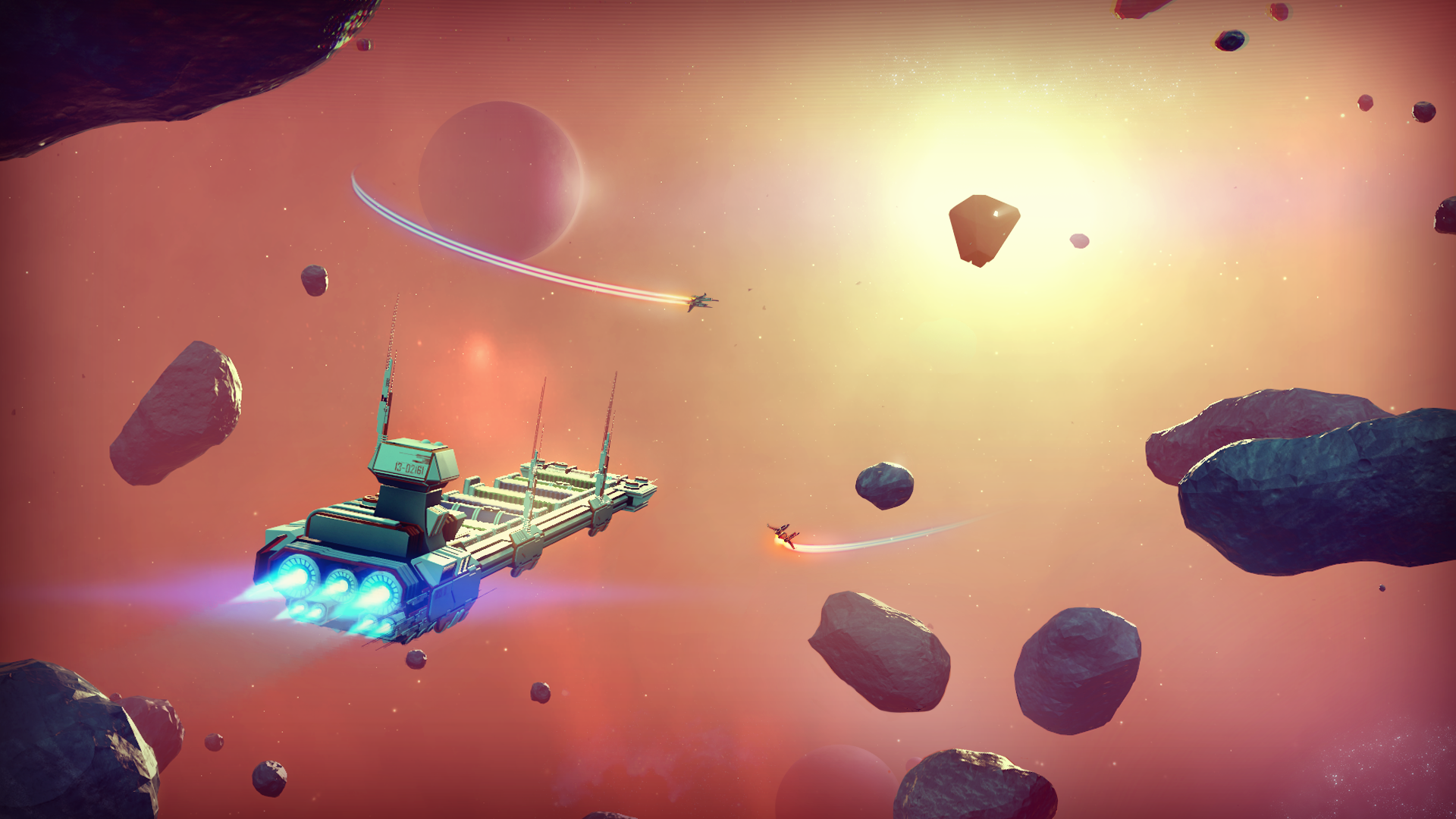
Beneath the glossy, retro-futuristic aesthetic is a burning desire to explore the unknown. Bring me that horizon!
-
Passive Multiplayer
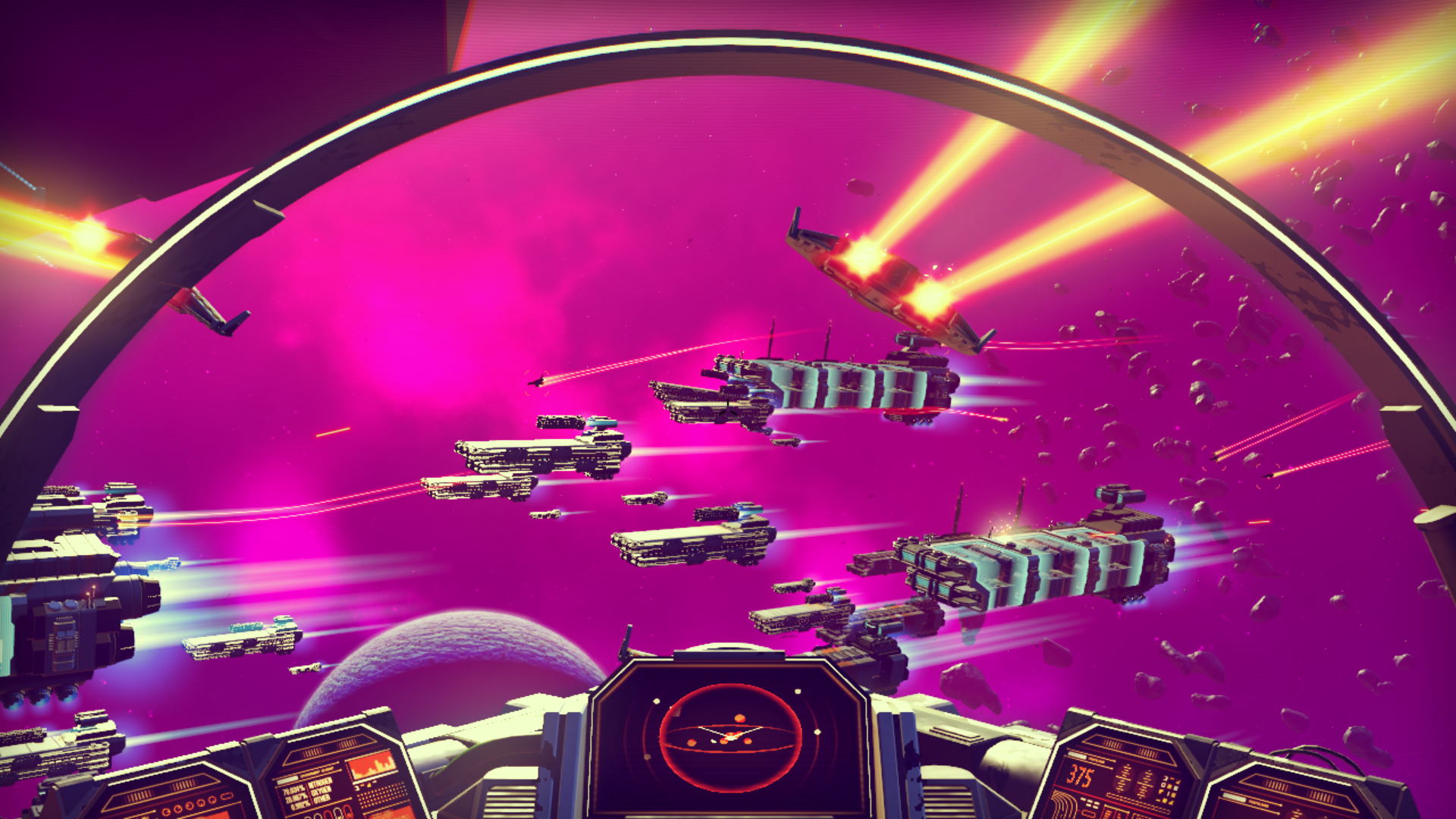
No Man's Sky may not be a multiplayer game per se, but other players will populate your stellar neighbourhood. After all, who doesn't love some friendly competition?
-
Every Atom Procedural
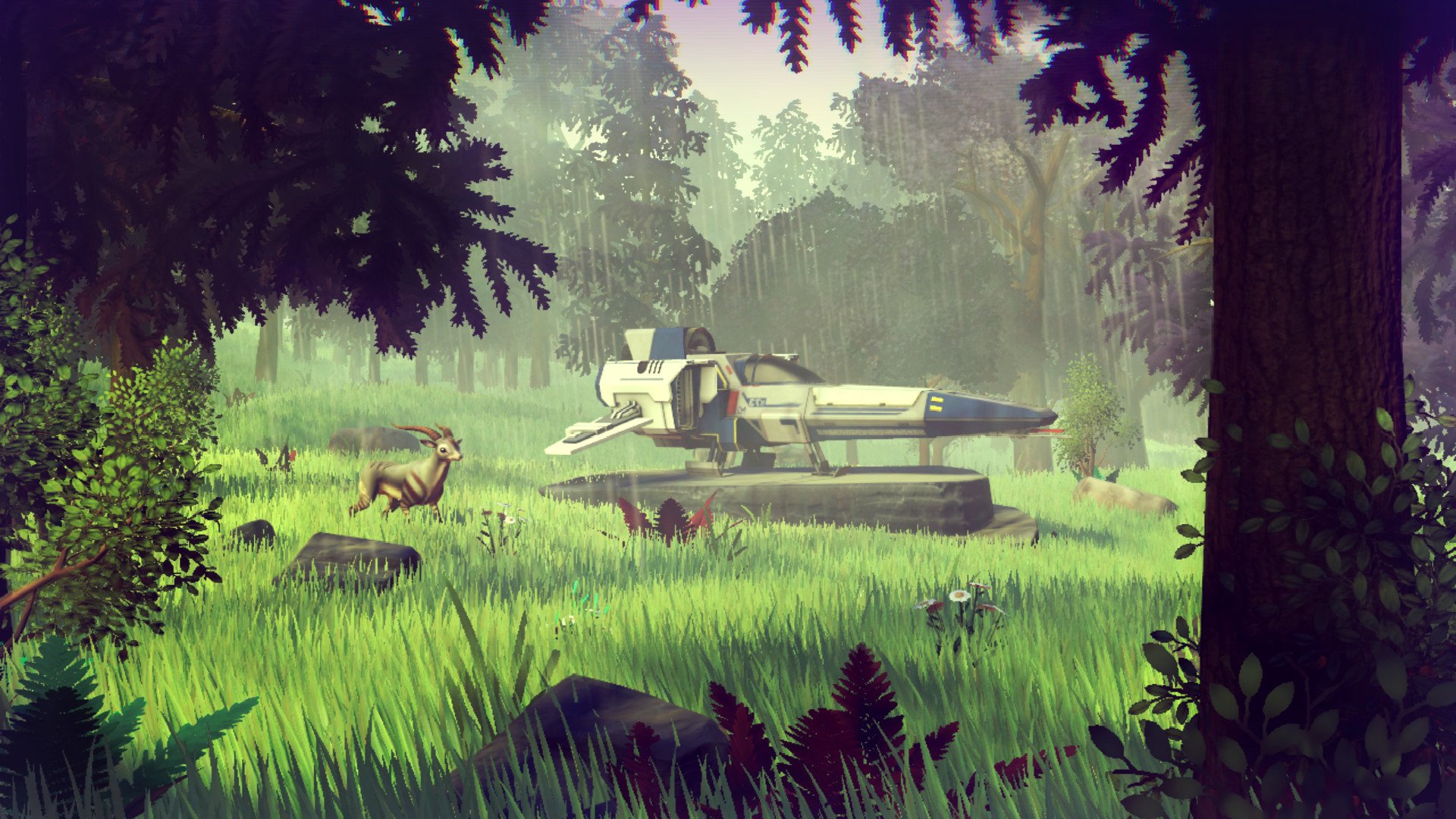
From bizarre wildlife to a planet's atmosphere, each world will be relatively different to the next, encouraging the player to go boldly where no man has gone before.

